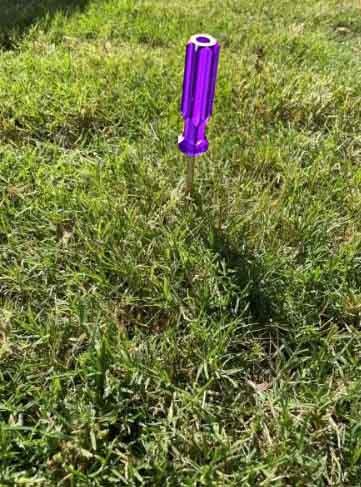Let us green up your lawn this year!
Bermuda Grass Facts

Bermuda grass is a warm-season perennial widely used for lawns in Georgia and the
southeastern United States. Contrary to its name, it is not native to the island
of Bermuda and actually originates in the eastern hemisphere.
What makes Bermuda Different?
Bermuda is a self-healing grass, which means it can fill in bare or thin spots by
literally taking new ground. It does this by sending out runners called stolons
and below-ground stems called rhizomes. These runners move fast over bare ground
and send up fresh grass blades. When taking fresh ground, they move fast and
stretch far and wide. And when there is no more easy ground to take, these
runners begin to knit together tightly, creating a dense, thick mat of grass.
Seasonal Changes
 Late spring – Georgia summer temperatures are rising and growth of bermuda grass
starts to accelerate. Here is when you start to see runners and the Bermuda will
spread and thicken.
Late spring – Georgia summer temperatures are rising and growth of bermuda grass
starts to accelerate. Here is when you start to see runners and the Bermuda will
spread and thicken.
Summer – Temperatures continue to rise and your grass is starting to grow rapidly.
Bermuda grass thrives in the 85-90 degree temps. As long as it’s got enough water,
it will continue this way until fall.
Fall – Bermuda grass growth starts to slow but will remain green until the the first
frosts of the year. Now is the time to apply a pre-emergent herbicide.
Winter – At this time, Bermuda enters dormancy and turns brown. Remember, while it is
dormant, it is still alive, so don’t pull it up or use a non-selective herbicide to kill it.
Early Spring – Your lawn is starting to wake up out of dormancy. There will be slow
growth and a slow greening of the lawn, as some new green blades shoot up. There
will also be some weeds if as well as some weeds. From March 15th to April 30th is
the best time to scalp your yard.

Tips for Maintaining Bermuda Grass
Mow Frequently: Keep your lawn mower set to a height of 1-2 inches. Cutting too much at once can expose the brown, lower part of the plant.
Monitor Watering: Bermuda grass needs 1-1.5 inches of water per week. Use a soil moisture meter to ensure the lawn is not over or under-watered.
Fertilize Regularly: Establish a consistent fertilization schedule. Bermuda grass thrives with regular feeding which promotes healthy growth and vibrant color.
Manage Shade: Trim trees and bushes to allow maximum sunlight to reach the grass. If possible, remove or raise the canopy of trees that cast significant shade.
Pre-Emergent Weed Control: Apply pre-emergent herbicides to prevent weeds from taking root. This proactive step can save a lot of time and effort later.
Most of our clients have bermuda grass, and we have years of experience in keeping their
lawns growing strong and green. If you have any specific questions about your lawn (whether
you’ve got Bermuda, Zoysia, Fescue, or Centipede grass) feel free to give us a call at
404-376-9554.
Hope to hear from you soon!
Why Choose Absolute Green Landscaping?


At Absolute Green Landscaping, we provide expert lawn aeration in Buford, GA and surrounding areas. With over 16 years of experience, our team knows exactly how to tackle Georgia’s tough clay soil. Our process is efficient, professional, and guaranteed to give your lawn the boost it needs.
📞 Get a Free Lawn Aeration Quote Today!
Don’t let compacted soil ruin your lawn’s potential! Contact Absolute Green Landscaping today for a free lawn aeration quote. Let’s make your lawn the envy of the neighborhood!









